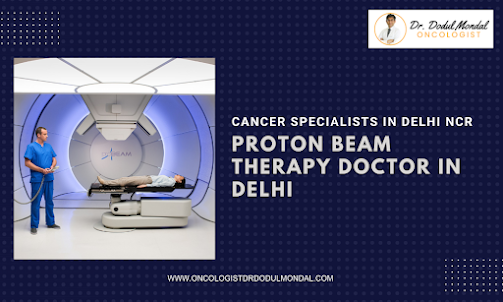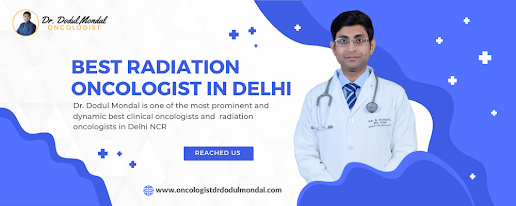The Best Proton Beam Therapy Doctor in Delhi
Proton beam therapy is an advanced form of radiation therapy that uses high-energy proton beams to destroy cancer cells. It is a precise and effective treatment option for various types of cancer, including brain tumors, eye tumors, and prostate cancer. In Delhi, there are several experienced and skilled proton beam therapy doctors. However, one doctor who stands out among them is Dr.Dodul Mondal.
One such doctor is Dr.Dodul Mondal, who is a radiation oncologist at the Associate Director, Oncology/Radiation Oncology at Max Super Speciality Hospital, Saket, New Delhi. He has extensive experience in proton beam therapy and has treated numerous patients with various types of cancer.
Dr. Kaul is a pioneer in the field of proton beam therapy in India. He has been instrumental
in setting up the country's first proton therapy center at Apollo Proton Cancer Centre in
Chennai. He has also been involved in several research studies on proton therapy and
has presented his work at various national and international conferences.
Dr. Kaul's expertise in proton beam therapy is recognized not only in India but also globally.
He is a member of several international organizations, including the Particle Therapy
Co-Operative Group (PTCOG), the American Society of Clinical Oncology (ASCO), and the
European Society for Radiotherapy and Oncology (ESTRO).
Dr. Kaul's approach to proton beam therapy is patient-centric. He believes in providing personalized care to each patient and designing a treatment plan that best suits their needs. He is known for his compassionate and empathetic approach toward his patients, which helps them feel comfortable
and confident during their treatment.
Apart from his expertise in proton beam therapy, Dr. Kaul is also skilled in other radiation therapy modalities. He has vast experience in using high-energy X-rays, Gamma rays, and electron beams
to treat various types of cancer. He is also proficient in brachytherapy, a technique that involves placing radioactive sources inside the body to treat cancer.
Dr. Kaul's qualifications and achievements are impressive. He completed his MBBS and MD in Radiotherapy from the All India Institute of Medical Sciences (AIIMS), New Delhi, which is one of the premier medical institutes in India. He then went on to pursue further training in radiation oncology
at various institutes in the United Kingdom, including the Royal Marsden Hospital in London.
Conclusion -
Dr.Dodul Mondal is one of the best proton beam therapy doctors in Delhi. He is a pioneer in the field of proton therapy in India and has extensive experience in treating various types of cancer
using radiation therapy. He is known for his patient-centric approach and compassionate care. His qualifications and achievements make him one of the most sought-after radiation oncologists in the country. If you or your loved one requires proton beam therapy or any other radiation therapy,
Dr.Dodul Mondal is an excellent choice for a doctor.








.png)

